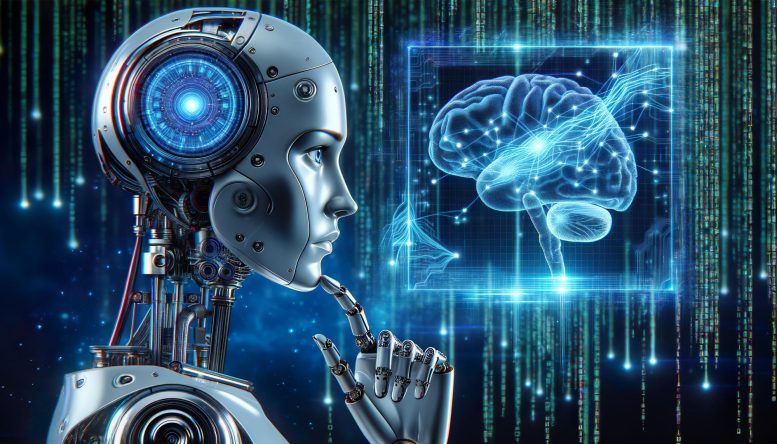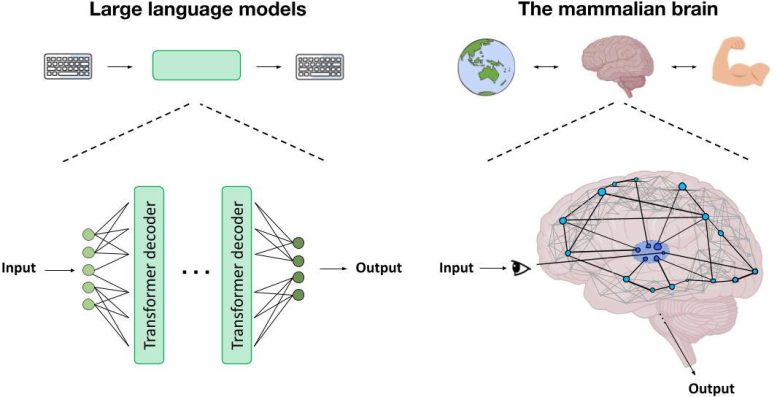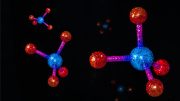
The advanced capabilities of AI systems, such as ChatGPT, have stirred discussions about their potential consciousness. However, neuroscientists Jaan Aru, Matthew Larkum, and Mac Shine argue that these systems are likely unconscious. They base their arguments on the lack of embodied information in AI, the absence of certain neural systems tied to mammalian consciousness, and the disparate evolutionary paths of living organisms and AI. The complexity of consciousness in biological entities far surpasses that in current AI models.
The increasing sophistication of artificial intelligence (AI) systems has led some to speculate that these systems may soon possess consciousness. However, we might underestimate the neurobiological mechanisms underlying human consciousness.
Modern AI systems are capable of many amazing behaviors. For instance, when one uses systems like ChatGPT, the responses are (sometimes) quite human-like and intelligent. When we, humans, are interacting with ChatGPT, we consciously perceive the text the language model generates. You are currently consciously perceiving this text here!
The question is whether the language model also perceives our text when we prompt it. Or is it just a zombie, working based on clever pattern-matching algorithms? Based on the text it generates, it is easy to be swayed that the system might be conscious. However, in this new research, Jaan Aru, Matthew Larkum, and Mac Shine take a neuroscientific angle to answer this question.
Neuroscientific Perspectives on AI
All three being neuroscientists, these authors argue that although the responses of systems like ChatGPT seem conscious, they are most likely not. First, the inputs to language models lack the embodied, embedded information content characteristic of our sensory contact with the world around us. Secondly, the architectures of present-day AI algorithms are missing key features of the thalamocortical system that have been linked to conscious awareness in mammals.
Finally, the evolutionary and developmental trajectories that led to the emergence of living conscious organisms arguably have no parallels in artificial systems as envisioned today. The existence of living organisms depends on their actions and their survival is intricately linked to multi-level cellular, inter-cellular, and organismal processes culminating in agency and consciousness.

Left: a schematic depicting the basic architecture of a large language model, which can have
tens or even more than a hundred decoder blocks arranged in a feed-forward fashion.
Right: a heuristic map of the thalamocortical system, which generates complex activity patterns thought to underlie consciousness. Credit: Mac Shine, Jaan Aru
Thus, while it is tempting to assume that ChatGPT and similar systems might be conscious, this would severely underestimate the complexity of the neural mechanisms that generate consciousness in our brains. Researchers do not have a consensus on how consciousness rises in our brains. What we know, and what this new paper points out, is that the mechanisms are likely way more complex than the mechanisms underlying current language models.
For instance, as pointed out in this work, real neurons are not akin to neurons in artificial neural networks. Biological neurons are real physical entities, which can grow and change shape, whereas neurons in large language models are just meaningless pieces of code. We still have a long way to understand consciousness and, hence, a long way to conscious machines.
Reference: “The feasibility of artificial consciousness through the lens of neuroscience” by Jaan Aru, Matthew E. Larkum and James M. Shine, 18 October 2023, Trends in Neurosciences.
DOI: 10.1016/j.tins.2023.09.009









As the article points out, the answer is probably no. Still, it has interesting neurological and philosophical ideas.
These AI do “lack the…sensory contact with the world around us”. An idea in the 2000s was that maybe AI could be kickstarted using vast amounts of data, learning for a critical-mass event. A database plus sensors could create recognition. That seems to have gotten us Watson and ChatGPT, but not intelligence. The argument AI is missing a thalamocortical system, I can’t disagree but there’s no explanation given ahead of the paywall. The argument on evolutionary trajectories, actually some AI have been programmed to learn through success and failure, which usually gets demonstrated by having little robots play sports, and sometimes even shows emergent teamwork.
The AI we have is “weak AI”, conscious of nothing. There is no intelligence yet. Maybe it can pass a Turing test, but it’s being sold as AI for promotional reasons. What we have now is a database plus pattern matching algorithms, which is impressive, but not as useful as the salesman says.
If anyone wants a vision of what a conscious AI might look like, they will have to turn to SF.
Iain M. Banks (passed) presupposed a post-scarcity reality called the ‘The Culture’ in 10 novels, which is ruled by sentient “Minds”.
These Minds exist in multiple dimensions and are far more powerful than any human,
But they are (mostly) benevolent to humans. They provide everything that humans need or want and no one needs to work any longer. They offer a hedonistic universe where anyone can acquire anything, do or be almost anything they want (even change sexes and give birth). The Minds and their worker robots take care of all the details of life while people do what makes themselves happy. Mostly, the Minds don’t get involved in petty BS among humans.
If you choose to read these novels, do so in numerical order (list available in Wikipedia).
It’s becoming clear that with all the brain and consciousness theories out there, the proof will be in the pudding. By this I mean, can any particular theory be used to create a human adult level conscious machine. My bet is on the late Gerald Edelman’s Extended Theory of Neuronal Group Selection. The lead group in robotics based on this theory is the Neurorobotics Lab at UC at Irvine. Dr. Edelman distinguished between primary consciousness, which came first in evolution, and that humans share with other conscious animals, and higher order consciousness, which came to only humans with the acquisition of language. A machine with only primary consciousness will probably have to come first.
What I find special about the TNGS is the Darwin series of automata created at the Neurosciences Institute by Dr. Edelman and his colleagues in the 1990’s and 2000’s. These machines perform in the real world, not in a restricted simulated world, and display convincing physical behavior indicative of higher psychological functions necessary for consciousness, such as perceptual categorization, memory, and learning. They are based on realistic models of the parts of the biological brain that the theory claims subserve these functions. The extended TNGS allows for the emergence of consciousness based only on further evolutionary development of the brain areas responsible for these functions, in a parsimonious way. No other research I’ve encountered is anywhere near as convincing.
I post because on almost every video and article about the brain and consciousness that I encounter, the attitude seems to be that we still know next to nothing about how the brain and consciousness work; that there’s lots of data but no unifying theory. I believe the extended TNGS is that theory. My motivation is to keep that theory in front of the public. And obviously, I consider it the route to a truly conscious machine, primary and higher-order.
My advice to people who want to create a conscious machine is to seriously ground themselves in the extended TNGS and the Darwin automata first, and proceed from there, by applying to Jeff Krichmar’s lab at UC Irvine, possibly. Dr. Edelman’s roadmap to a conscious machine is at https://arxiv.org/abs/2105.10461
Nopeitty, nope!
You are confusing inelligence and conscioussness. Conscioussness only comes through the Universe, intelligence can be found in many places.
A test: can it evolve itself beyond what it is without any external input – if so, THAT is conscioussness!